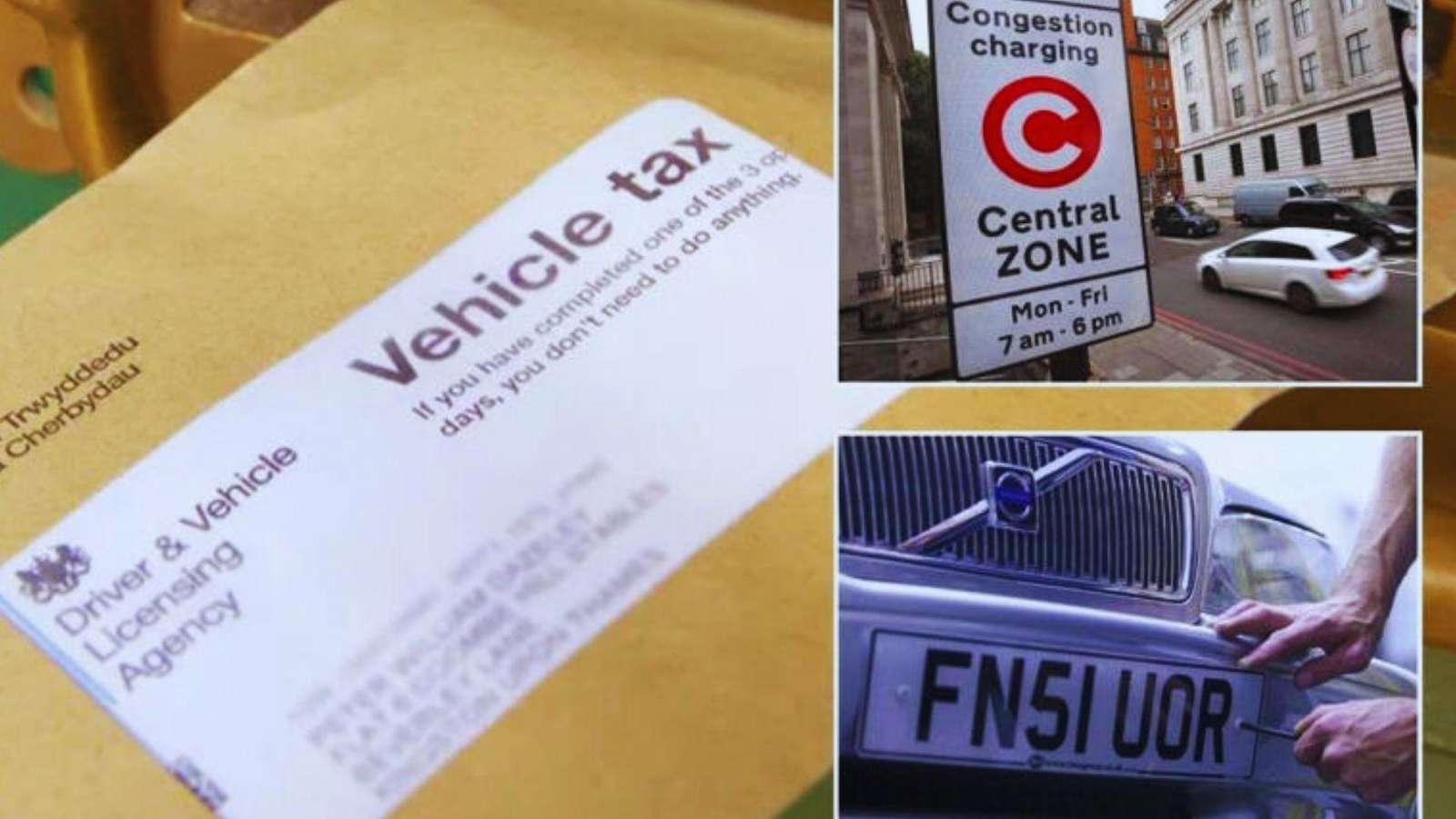Over the next 12 months, a number of new driving rule amendments are expected to be implemented, which might significantly affect drivers' financial situation and travel preferences.
In 2024, Britons have already had to contend with a plethora of new legislation, including as new Low Emission Zones, targets for electric vehicles, increases in auto taxes, and modifications to international driving regulations.
GB News has compiled the most significant driving legislation changes in 2025 that may affect you, as the new regulations are set to be implemented throughout the course of the next 12 months.
Car tax
From April 1, 2025, standard Vehicle Excise Duty (VED) rates for cars, vans and motorcycles, excluding first year rates for cars, in line with the Retail Price Index (RPI).
VED first year rates for new cars registered on or after April 1, 2025, will be hiked to "strengthen incentives to purchase zero emission and electric cars, by widening the differentials between zero emission, hybrid and internal combustion engine cars". This means:
・Zero emission cars will pay the lowest first year rate at £10 until 2029-30
・Rates for cars emitting 1-50g/km of CO2, including hybrid vehicles, will increase to £110 for 2025-26
・Rates for cars emitting 51-75g/km of CO2, including hybrid vehicles, will increase to £130 for 2025-26
・All other rates for cars emitting 76 g/km of CO2 and above will double from their current level for 2025-26
April will also see the introduction of car tax changes for electric vehicles, as announced in the 2022 Autumn Budget. While they will not need to pay as much as most petrol and diesel vehicles, it makes a clear shift from the Government.
Car finance
The Financial Conduct Authority set a new deadline for lenders to respond to customer complaints in response to claims they were missold car finance.
They now have until December 4, 2025, to provide a final response to agreements which do not involve a discretionary commission arrangement (DCA) in a case which has been compared to the scale of the PPI scandal.
Money Saving Expert Martin Lewis noted that the FCA was intending to set out further steps in May 2025 when the investigation concludes.
Major car finance companies have set aside hundreds of millions of pounds to settle cases over accusations dealers received compensation from lenders without telling the customer about the commission and getting their informed consent to the payment.
Electric vehicles
With the Zero Emission Vehicle (ZEV) mandate entering its second year of operation, manufacturers will be looking to produce more electric vehicles as targets increase.
By the end of 2025, car brands will need 28 per cent of their car sales and 16 per cent of van sales to be zero emission, up from 22 per cent and 10 per cent in 2024 respectively.
Changes will also be introduced for motorists with the closure of the electric vehicle chargepoint grant for households with on-street parking. Funding has not yet been confirmed beyond March 31, 2025, at 11pm.
This helps motorists with residential properties to get 75 per cent off the cost to buy and install a socket, up to a maximum of £350.
The Government could also scrap the Plug-in Taxi Grant, which provides a £7,500 discount on the price of a new electric taxi, although further funding has not yet been confirmed.
Number plates
In keeping with tradition, motorists will see the launch of two new number plate identifiers in 2025 as car forecourts prepare to welcome a new batch of the latest models.
On March 1, 2025, the new "25" number plate will be rolled out, while the "75" plate will be seen on forecourts from September 1, 2025.
New London charges
Transport for London will oversee the launch of the new Silvertown tunnel, which will help ease traffic alongside the Blackwall tunnel in east London. While charges have yet to be formally confirmed, drivers are expected to be charged a standard fee of £1.50 if registered with TfL AutoPay, while peak charges would cost £1 extra.
Tunnel user charges will be introduced for using the Silvertown and Blackwall Tunnels between 6am and 10pm, seven days a week once the new Silvertown Tunnel opens in spring 2025.
From December 25, 2025, the cleaner vehicle discount for London's Congestion Charge will be discontinued, which currently applies to battery electric or hydrogen fuel cell vehicles.
From this date, all vehicle owners, unless in receipt of another discount or exemption, will need to pay to enter the Congestion Charge zone during charging hours.
DVSA
The Driver and Vehicle Standards Agency has pledged to introduce several new changes in 2025 to improve the way young motorists book a driving test. This includes:
・Recruiting and training 450 new driving examiners
・Launching a call for evidence to improve the driving test booking system to make it easier and more efficient
Introducing tougher terms and conditions for the service driving instructors use to book and manage car driving tests for their pupils
・Consulting on new proposals to increase the amount of time people have to wait to book another test if they make multiple serious faults during the test, assault their examiner or fail to attend without telling the DVSA
・Increasing the amount of notice someone needs to give to change or cancel a car driving test without losing the fee
・Consider changing the current 24-week limit on how far ahead car driving tests can be booked
HGVs
On or after August 19, 2025, a "full" smart tachograph 2 or "transitional" smart tachograph 2 must be retrofitted into in-scope vehicles currently fitted with a smart tachograph 1 that are undertaking international journeys.
If the vehicle is operating only within the UK, then the vehicle can still use the smart tachograph 1 that has originally been fitted.
This follows on from rules introduced at the end of December 2024, which outlined that a "full" smart tachograph 2 or "transitional" smart tachograph 2 must be retrofitted into in-scope vehicles with an analogue or digital tachograph undertaking international journeys.



_6.jpg)
_5.jpg)



.svg)


